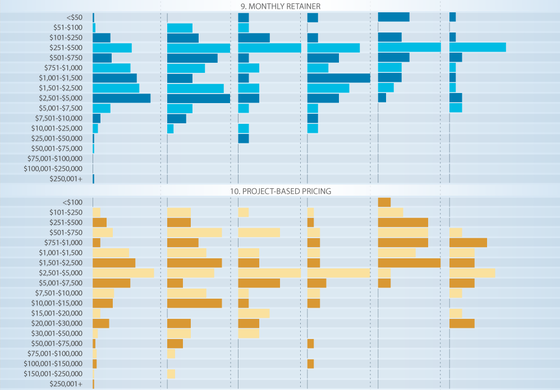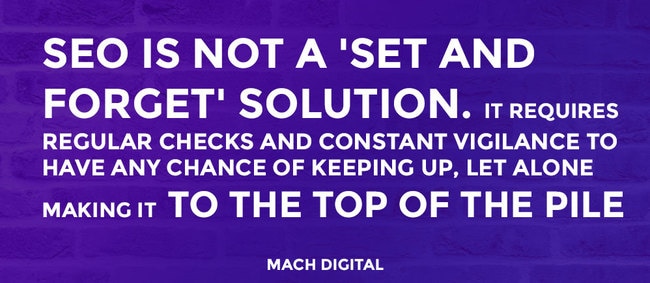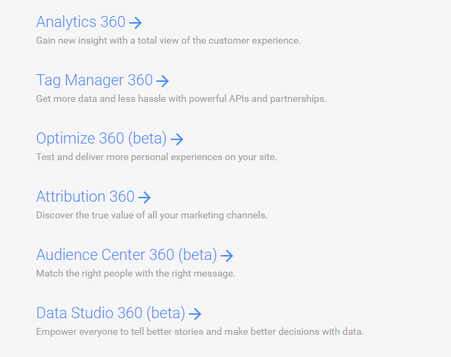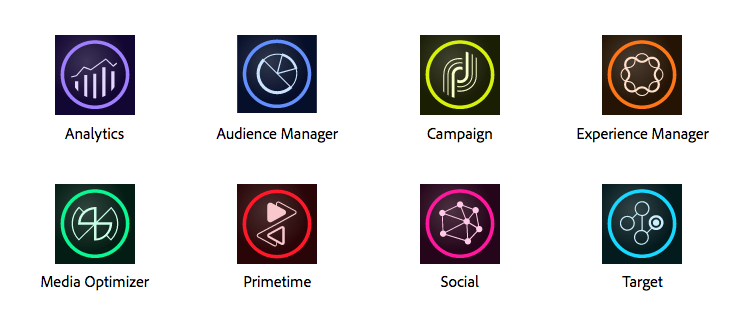|
7 min read
Whether you are in a large or small business; engaging with an SEO provider can come with it's share of uncertainty, as well as a minefield of SEO myths to navigate. This continues in part because the industry remains unregulated and also because of a significant knowledge gap - leading to the perception by many that SEO is a type of 'black magic' (when really, it isn't). Even Google has recently released a video about the topic in an attempt to help businesses choose an SEO provider and steer clear of the pitfalls. This article covers top level detail about SEO as well as aiming to answer the question 'how much does SEO cost?', for both small and large businesses. Understanding What's Involved (the short version)
Unlike many things, SEO is an intangible product and few people understand it really well.
Hence the dilemma. A recent SEJ article mentions a survey in which 38% of small businesses believe investing less than $100 a month will net them major SEO results. Another 33% believe it's very likely that their businesses will rank on the first page of Google results. To us, this is a clear (and somewhat alarming) illustration of the knowledge gap that exists. The short explanation of what's involved: In terms of SEO - everyone is climbing to the top of the same pile. And, this 'pile' keeps changing as new competitors enter the ring and invest in their own SEO; at last check a new website goes live about every 1.6 seconds. To add to it, Google keeps refining their search algorithm (read: 'changing their mind about how they rank websites') and shifting the goal posts. SEO therefore, is NOT a 'set and forget' solution. It requires regular checks and constant vigilance to have any chance of keeping up, let alone making it to the top of the pile. So...
Furthermore, nobody knows 100% 'what needs to be done' for SEO; nobody knows Google's 'secret sauce' (don't listen to anyone who tries to convince you otherwise). Even though there are guidelines, the most you can ever do is to put your best foot forward and see how Google responds and ranks your site. Most of SEO then is educated trial and error. It's not one-size-fits all, and it's never guaranteed to work. So... How Much Does SEO Cost ?
A comprehensive industry survey by Moz and AYTM Market Research (albeit a little old now, from 2012) covered 490 respondents in 10 countries - USA, UK, Canada, Australia, New Zealand, Germany, France, Italy, Netherlands, India - and had the following findings.
Most agencies will work and provide services and pricing either packaged/per-project usually based on deliverables, or a monthly retainer model usually based on hours:
The thing to keep in mind for most agencies is that it all comes down to hours one way or another; pricing will based on hours, which is indicative of the amount of work being done. Client side, it's important to be clear on the scope of work and expectations (as per points above). Pricing model and deliverables aside, at very least the agency should be able to show 'we did this many hours, carried out X tasks with Y results' (and explain the reasons WHY they did those things). How Cheap is Too Cheap?
With SEO more than some things it really is a case of getting what you pay for. Good SEO providers can deliver great long term results and achieve positive ROI for your business - small or large.
Armed with a thorough understanding of what's involved and realistic expectations based on your budget and competitors/industry, it's also fine to go searching for value for money. But how cheap is too cheap? Keep in mind the points raised above. Ask questions. Check contracts and be clear on what work is being done. Also, consider some of the risks of going 'too cheap':
A good rule of thumb is that if it seems too good to be true, it probably is. * This Forbes article discusses these points and goes into more detail. Then, Is SEO the Wrong Tool for Some Businesses?
Yes,it certainly can be.
Factors such as complexity, longer time frame to see results/get ROI and uncertainty can mean that SEO is not the best (or ONLY) tool for all business cases. Remember: SEO is not easy. You won't get anywhere for $100 a month. It takes time to work. Other examples:
As always, bring it back to:
Briefly... on Choosing an SEO Agency
We thought this point was important to include. However, since there are many great articles online which cover this, we won't go into detail here.
In short:
Some of the best articles we've come across for 'How to Choose an SEO Agency':
In Conclusion
SEO is not black magic, but it can be challenging and it takes time and effort to do properly.
The Upside If it's done well, the rewards and ROI from SEO can be great - but it's important to be aware of what's involved, choose an SEO/agency partner wisely and be clear and realistic with expectations. Keep in Mind... Due to the longer time frame, complexity and uncertainty, SEO may not be the best solution for all businesses. In almost all cases, it's worth considering SEO as one part of a holistic digital marketing strategy which may include other channels such as paid ads. We'd love to hear your comments and any personal experiences.
9 Comments
2 min read
Anyone who regularly visits the Google Analytics login page will have noticed their navigation bar has grown rapidly over the past 12 months. Along with a subtle name change from 'Google Analytics' to 'Google Analytics Solutions' and a swathe of new offerings to bulk out their Analytics 360 suite, it's fair to assume that Google has been lining up for a big swing at Adobe' Marketing Cloud suite for a while. * Adobe Analytics was formerly called SiteCatalyst - the flagship web analytics product by Omniture, which Adobe acquired in 2009. So what's next? Is Google's Analytics Suite ready to tackle Adobe in the Enterprise space? The Navigation Changes
Visually it's clear to see Google's new expanded products and scope of offerings:
Note: Google's 'Adometry' (or was it 'Adobetry'?) was also renamed to 'Attribution 360'.
Google Makes a Move
If it looks like things happened quickly - it did. Of course, Google is not exactly known for being slow. Before the navigation changes - around mid last year a host of new offerings aggressively appeared as beta products.
These have now taken their seat as fully fledged products in some shape or form.
Why the move?
It's no secret that digital marketing is becoming more data driven by the minute. It makes sense for Google to expand a wider selection of familiar, easy-to-use (and some completely free) products and tie these in with their existing Analytics suite. It certainly seems that larger/enterprise companies who currently use a disjointed collection of software - for example, Optimisely for A/B testing or Qualaroo for user surveys - have at least one all-in-one alternative to Adobe's Marketing Cloud for consideration. What's Next?
The secret of Adobe's success to date seems to be in it's enterprise users.
While Google Analytics has 7x more users, Adobe Analytics sells to bigger companies. This would appear then, to be the ground that Google needs to make gains on. Is Google ready to tackle Adobe yet? It's hard to say. We'd love to hear your feedback. One thing for sure - it will be interesting to see how thing continue to play out over the coming months. Further reading: Why Google Analytics Has Not Killed Adobe Analytics (…Yet) |









 RSS Feed
RSS Feed
